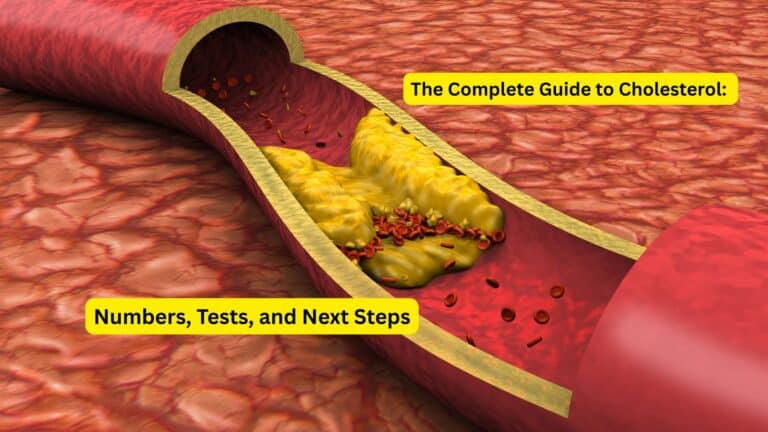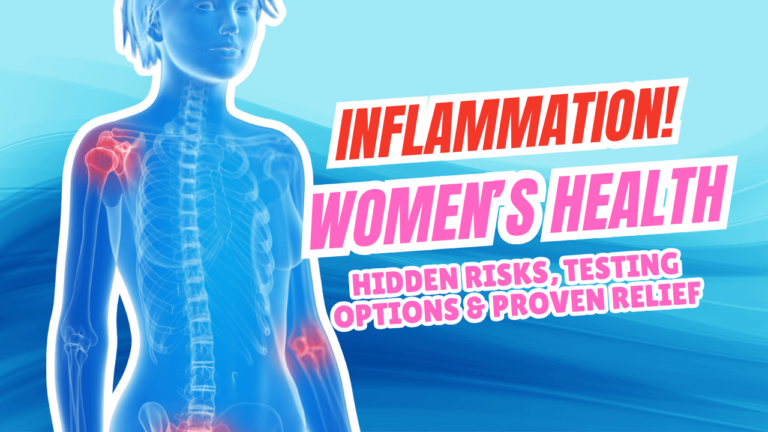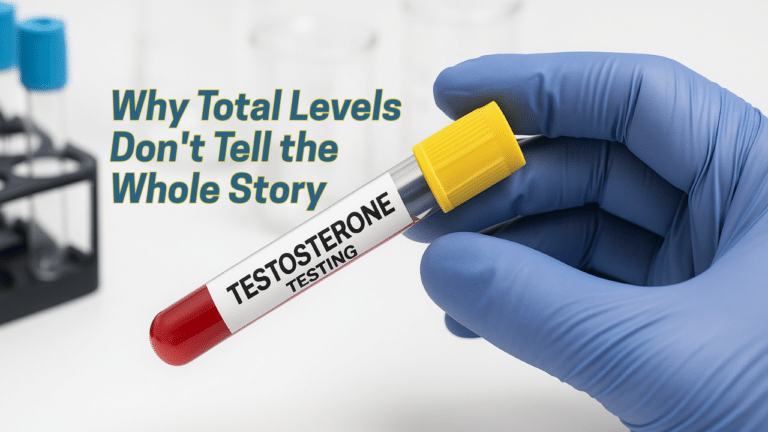When your immune system turns against your own thyroid gland, it can dramatically alter how your body functions and how you feel every day. Autoimmune thyroid conditions represent some of the most common organ-specific immune disorders, affecting millions of people worldwide—often without them realizing what’s happening. Understanding these conditions empowers you to recognize symptoms early, seek appropriate testing, and take control of your thyroid health before complications develop.
The two primary autoimmune thyroid conditions—Hashimoto’s thyroiditis and Graves’ disease—represent opposite sides of the thyroid function spectrum, yet they share similar underlying immune mechanisms. While Hashimoto’s typically leads to an underactive thyroid, Graves’ disease causes thyroid overactivity, and both can significantly impact your energy levels, weight, mood, and overall quality of life. Recognizing the signs and getting proper testing can make the difference between years of unexplained symptoms and effective management of these treatable conditions.
What Are Autoimmune Thyroid Conditions?
Autoimmune thyroid conditions occur when your immune system, designed to protect you from foreign invaders, mistakenly identifies healthy thyroid tissue as a threat. This immune system malfunction triggers an inflammatory response that can either destroy thyroid cells or overstimulate thyroid hormone production, depending on the specific condition and antibodies involved.
The Immune System Gone Awry
In autoimmune thyroid disorders, the immune system produces antibodies that target specific thyroid proteins, creating a cascade of inflammatory responses. These antibodies can either block thyroid function by destroying hormone-producing cells or stimulate excessive hormone production by mimicking natural thyroid-stimulating signals. The result is either hypothyroidism or hyperthyroidism, both of which can profoundly affect your metabolism and overall health.
Hashimoto’s vs. Graves’: Two Sides of the Same Coin
While both conditions stem from autoimmune dysfunction, they produce markedly different effects. Hashimoto’s thyroiditis typically results in hypothyroidism as immune cells gradually destroy thyroid tissue, leading to insufficient hormone production. Graves’ disease, conversely, occurs when antibodies overstimulate the thyroid, causing excessive hormone production and hyperthyroidism.
The Critical Role of Antibody Testing
Proper diagnosis of autoimmune thyroid conditions requires specific antibody tests beyond standard thyroid function tests. Anti-thyroid peroxidase (anti-TPO) antibodies, thyroglobulin antibodies, and TSH receptor antibodies help identify which type of autoimmune process is occurring and guide appropriate treatment decisions.
Hashimoto’s Thyroiditis: The Leading Cause of Hypothyroidism
Hashimoto’s thyroiditis stands as the most common cause of hypothyroidism in developed countries, representing a gradual autoimmune destruction of thyroid tissue. This condition develops slowly over months or years, often making symptoms easy to dismiss as normal aging or stress until thyroid function becomes significantly impaired.
Understanding the Disease Process
In Hashimoto’s thyroiditis, immune cells infiltrate the thyroid gland and systematically destroy the cells responsible for hormone production. This destruction occurs gradually, which explains why many people experience slowly worsening symptoms over time rather than sudden onset of thyroid problems. The inflammatory process can also cause the thyroid gland to enlarge, forming a goiter in some cases.
Recognizing Hashimoto’s Symptoms
The symptoms of Hashimoto’s thyroiditis typically reflect the metabolic slowdown caused by insufficient thyroid hormone production. Common signs include persistent fatigue that doesn’t improve with rest, unexplained weight gain despite normal eating habits, increased sensitivity to cold temperatures, dry skin and hair, constipation, and mood changes including depression or irritability.
Many people with Hashimoto’s also experience brain fog, difficulty concentrating, and memory problems. Women may notice changes in their menstrual cycles, while both men and women might experience decreased libido or fertility issues.
Who’s at Risk?
Women face a 4 to 10 times higher risk of developing Hashimoto’s disease compared to men, with peak incidence occurring between ages 45-55. However, the condition can develop at any age, including in children and young adults. Family history plays a significant role, as genetic factors contribute substantially to disease risk. Other autoimmune conditions, such as type 1 diabetes, celiac disease, or rheumatoid arthritis, also increase the likelihood of developing Hashimoto’s.
Graves’ Disease: When the Immune System Overstimulates
Graves’ disease represents the opposite autoimmune dysfunction from Hashimoto’s, occurring when antibodies mimic thyroid-stimulating hormone and cause the thyroid to produce excessive amounts of hormone. This condition often develops more rapidly than Hashimoto’s, with symptoms appearing over weeks to months rather than years.
The Mechanism Behind Overactivity
In Graves’ disease, thyroid-stimulating immunoglobulin (TSI) antibodies bind to TSH receptors on thyroid cells, causing continuous stimulation of hormone production. Unlike normal TSH regulation, which responds to hormone levels through feedback mechanisms, these antibodies continue stimulating the thyroid regardless of existing hormone levels, leading to persistent hyperthyroidism.
Identifying Graves’ Disease Symptoms
The symptoms of Graves’ disease reflect the metabolic acceleration caused by excessive thyroid hormone. Common signs include unintentional weight loss despite increased appetite, rapid or irregular heartbeat, nervousness and anxiety, trembling hands, excessive sweating and heat intolerance, and difficulty sleeping.
Graves’ disease affects approximately 1-2% of the population and represents the leading cause of hyperthyroidism. A distinctive feature of Graves’ disease can be eye changes, including bulging eyes, double vision, or eye irritation, though not everyone with the condition experiences these symptoms.
Treatment Approaches
Managing Graves’ disease typically involves antithyroid medications that reduce hormone production, radioactive iodine therapy that destroys overactive thyroid tissue, or surgical removal of the thyroid gland. The choice of treatment depends on factors such as age, symptom severity, pregnancy status, and individual patient preferences.
Shared Risk Factors and Triggers
Both Hashimoto’s and Graves’ disease share common risk factors and environmental triggers that can precipitate autoimmune thyroid dysfunction in genetically susceptible individuals. Understanding these factors can help identify people at higher risk and potentially prevent or delay disease onset.
Genetic Predisposition
Specific genes including HLA, CTLA-4, and PTPN22 contribute to autoimmune thyroid disease susceptibility, explaining why these conditions often run in families. However, genetics alone don’t determine disease development—environmental factors play crucial roles in triggering autoimmune responses in genetically predisposed individuals.
Environmental Triggers
Several environmental factors can trigger autoimmune thyroid disease in susceptible individuals. Excessive iodine intake can precipitate both conditions, while chronic stress may contribute to immune dysfunction. Smoking increases the risk of developing Graves’ disease and can worsen eye complications. Viral infections, particularly those affecting the respiratory system, have been linked to autoimmune thyroid disease onset.
Exposure to certain chemicals, radiation, and some medications can also trigger thyroid autoimmunity. Women often develop these conditions during times of hormonal change, such as after pregnancy or during menopause, suggesting that hormonal fluctuations may serve as triggers.
The Gender and Age Factor
Women’s higher susceptibility to autoimmune thyroid conditions likely relates to hormonal influences on immune function, particularly estrogen’s effects on immune system activity. Age also plays a role, with risk increasing throughout adulthood, though these conditions can develop at any age.
Disease Transitions
Interestingly, some patients may transition between Hashimoto’s and Graves’ disease over time, experiencing periods of both hypothyroidism and hyperthyroidism. This phenomenon highlights the shared autoimmune basis of both conditions and emphasizes the importance of ongoing monitoring and flexible treatment approaches.
Pediatric & Co-Existing Autoimmune Conditions
Autoimmune thyroid conditions don’t only affect adults—children and adolescents can also develop these disorders, particularly after puberty when hormonal changes may trigger immune dysfunction. Recognition in younger patients is crucial for proper growth and development.
Childhood and Adolescent Considerations
In children and teenagers, autoimmune thyroid conditions can significantly impact growth, academic performance, and emotional development. Girls face higher risk than boys, especially after puberty begins. Symptoms may be subtle initially, making regular screening important for children with family histories of thyroid or other autoimmune conditions.
Associated Autoimmune Conditions
People with autoimmune thyroid disease often develop other autoimmune conditions, a phenomenon known as autoimmune clustering. Common associations include type 1 diabetes, celiac disease, vitiligo, rheumatoid arthritis, and adrenal insufficiency. This clustering suggests shared genetic susceptibility and emphasizes the importance of monitoring for other autoimmune conditions in patients diagnosed with thyroid autoimmunity.
Family Screening Importance
Given the genetic component of autoimmune thyroid disease, family members of affected individuals should consider screening, especially if they experience suggestive symptoms. Early detection allows for prompt treatment and can prevent complications associated with prolonged thyroid dysfunction.
Emerging Research & Mental Health Connections
Recent research has expanded our understanding of autoimmune thyroid conditions beyond traditional hormone-focused approaches, revealing important connections to mental health, nutritional factors, and personalized medicine approaches.
The Vitamin D Connection
Emerging research suggests vitamin D deficiency may contribute to autoimmune thyroid disease development and progression. Vitamin D plays crucial roles in immune system regulation, and deficiency may increase autoimmune activity. Some studies suggest vitamin D supplementation might help manage autoimmune thyroid conditions, though more research is needed to establish definitive recommendations.
Mental Health Impacts
Autoimmune thyroid conditions significantly affect mental health, often causing anxiety, depression, mood instability, and cognitive problems. These effects result partly from hormone imbalances but may also stem from the chronic inflammatory processes associated with autoimmune disease. Understanding these connections helps explain why treating thyroid hormone levels alone may not fully resolve all symptoms.
Personalized Medicine Approaches
Future management of autoimmune thyroid conditions may increasingly incorporate personalized medicine approaches, considering individual genetic profiles, environmental exposures, and immune system characteristics. This could lead to more targeted treatments and better prediction of disease progression and treatment responses.
Testing & Diagnosis: Why Early Detection Matters
Proper diagnosis of autoimmune thyroid conditions requires comprehensive testing that goes beyond basic thyroid function tests. Early detection enables prompt treatment, potentially preventing complications and improving long-term outcomes.
Essential Thyroid Function Tests
Standard thyroid testing includes TSH, Free T4, and Free T3 measurements to assess overall thyroid function. However, these tests don’t reveal whether thyroid dysfunction stems from autoimmune causes, making antibody testing crucial for complete diagnosis.
Antibody Testing for Accurate Diagnosis
Specific antibody tests help identify autoimmune thyroid conditions and distinguish between different types. Anti-thyroid peroxidase (anti-TPO) and anti-thyroglobulin antibodies typically indicate Hashimoto’s thyroiditis, while TSH receptor antibodies (TRAb or TSI) suggest Graves’ disease. These tests help predict disease progression and guide treatment decisions.
Walk-In Lab’s Comprehensive Testing
Walk-In Lab provides convenient access to comprehensive thyroid testing, including both function tests and antibody panels, without requiring a doctor’s appointment or insurance authorization. This accessibility allows people to monitor their thyroid health proactively and seek medical care when abnormalities are detected.
When to Consider Testing
Thyroid testing should be considered for anyone experiencing symptoms suggestive of thyroid dysfunction, individuals with family histories of thyroid or autoimmune diseases, and those with other autoimmune conditions. Regular monitoring may also be appropriate for people taking medications that can affect thyroid function or those exposed to significant stress or environmental toxins.
Frequently Asked Questions
What causes Hashimoto’s and Graves’ disease?
Both conditions result from autoimmune reactions where the immune system mistakenly attacks thyroid tissue. The exact triggers vary among individuals but typically involve a combination of genetic susceptibility and environmental factors such as stress, infections, excessive iodine intake, smoking, or exposure to certain chemicals or medications.
Who is most at risk for these conditions?
Women face significantly higher risk than men, with peak incidence during middle age (45-55 years). Family history of thyroid or other autoimmune diseases substantially increases risk. People with existing autoimmune conditions like type 1 diabetes, celiac disease, or rheumatoid arthritis also have elevated risk of developing autoimmune thyroid disease.
Can Hashimoto’s thyroiditis lead to hypothyroidism?
Yes, Hashimoto’s thyroiditis is the most common cause of hypothyroidism in areas with adequate iodine intake. The condition involves gradual destruction of thyroid hormone-producing cells, eventually leading to insufficient hormone production and the symptoms associated with hypothyroidism.
Is Graves’ disease curable?
While Graves’ disease can’t be “cured” in the traditional sense, it can be effectively managed through various treatments including antithyroid medications, radioactive iodine therapy, or surgical thyroid removal. Many patients achieve long-term remission, though ongoing monitoring remains important to detect any recurrence or development of hypothyroidism.
Can these diseases occur together or transform from one to another?
Yes, some patients experience transitions between Hashimoto’s and Graves’ disease over time, reflecting their shared autoimmune basis. A person might initially have Graves’ disease and later develop Hashimoto’s thyroiditis, or vice versa. This phenomenon emphasizes the importance of regular monitoring and flexible treatment approaches.
Conclusion
Autoimmune thyroid conditions—whether Hashimoto’s thyroiditis leading to hypothyroidism or Graves’ disease causing hyperthyroidism—represent complex disorders that can significantly impact quality of life when left undiagnosed or poorly managed. Both conditions share common autoimmune roots involving genetic susceptibility triggered by environmental factors, yet they produce opposite effects on thyroid function and metabolism.
Understanding these conditions empowers individuals to recognize symptoms early, seek appropriate testing, and work with healthcare providers to develop effective management strategies. The key to successful outcomes lies in early detection through comprehensive testing that includes both thyroid function and antibody measurements.Don’t let unexplained fatigue, weight changes, mood shifts, or other thyroid-related symptoms continue without answers. Take control of your thyroid health by understanding your immune status and thyroid function through proper testing. Order your thyroid antibody and function test at Walk-In Lab today and take the first step toward optimal thyroid health management.






